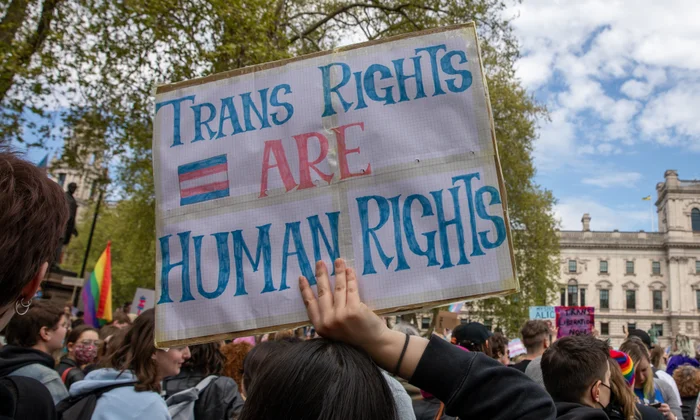The transgender community, often collectively referred to as “trans folks,” encompasses a diverse group of individuals whose gender identity differs from the sex they were assigned at birth. Understanding and supporting trans people is essential in today’s world, especially as visibility and advocacy have grown substantially. In 2025, with increasing social awareness, there remains a need to deepen public comprehension and foster respectful interaction to ensure trans lives experience dignity, equality, and acceptance.
This comprehensive guide explores critical aspects of transgender identities, common experiences, terminology, challenges, and how to be a genuine ally.
Who Are Trans Folks?
Transgender people include individuals whose gender identity— their deep, personal sense of being male, female, both, neither, or somewhere along the spectrum—does not align with their birth-assigned sex. This group covers a broad range of identities, such as:
-
Trans Women: Individuals who were assigned male at birth but identify and live as women.
-
Trans Men: Individuals who were assigned female at birth but identify and live as men.
-
Non-Binary People: Those who do not exclusively identify as male or female.
-
Genderqueer, Genderfluid, Agender, and Others: Terms describing additional variations beyond the binary.
Each person’s journey is unique, reflecting their identity, expression, and personal experiences.
Important Terminology
Learning respectful terms is foundational to supporting trans folks effectively.
-
Sex Assigned at Birth: The label given at birth based on physical characteristics.
-
Gender Identity: How a person internally feels and identifies their gender.
-
Gender Expression: How a person presents their gender through clothing, behavior, and appearance.
-
Transitioning: The process some trans people undertake to align their physical, social, and legal status with their gender identity. This may include medical, social, and/or legal steps.
-
Deadnaming: Referring to a trans person by their birth name instead of their chosen name; it is hurtful and disrespectful.
-
Misgendering: Using incorrect pronouns or gendered terms for someone; considered disrespectful.
Common Experiences and Challenges
Many trans people share experiences shaped by societal attitudes, though individual paths differ greatly:
1. Discrimination and Stigma
Trans folks often face prejudice in employment, healthcare, housing, and public spaces. This systemic discrimination contributes to social marginalization and mental health challenges.
2. Coming Out and Acceptance
Coming out as transgender is a critical, sometimes difficult, process involving personal and social affirmation. Family, friends, and community acceptance varies widely, which profoundly impacts well-being.
3. Healthcare Needs
Gender-affirming healthcare—including hormone treatments and surgeries—is vital for many trans people’s mental and physical health. Access remains limited in many areas due to cost, systemic barriers, or lack of knowledgeable providers.
4. Legal Recognition
Name and gender marker changes on official documents are important for safety and dignity, though legal processes can be complex and vary by jurisdiction.
5. Mental Health
Facing stigma, rejection, and societal challenges increases risk for mental health issues among trans individuals. Affording supportive counseling and community connections can be life-saving.
How to Be a Supportive Ally
Being an ally requires active learning, empathy, and advocacy:
Use Correct Names and Pronouns
Always use a person’s chosen name and pronouns. If unsure, politely ask and respect their preferences.
Educate Yourself
Seek out reliable sources about transgender issues instead of relying on trans people to educate you.
Speak Up Against Discrimination
Challenge transphobic comments, jokes, or policies in your circles and communities.
Support Trans Rights and Access
Advocate for inclusive policies, healthcare access, and equal opportunities for trans individuals.
Listen and Believe
Validate trans people’s experiences—listen without judgment and take their concerns seriously.
Creating Inclusive Spaces
Workplaces, schools, healthcare settings, and social environments all benefit from inclusive policies and practices such as:
-
Gender-neutral bathrooms and facilities.
-
Anti-discrimination policies that explicitly include gender identity and expression.
-
Inclusive language and training programs.
-
Access to gender-affirming healthcare.
These efforts reduce barriers and foster belonging.
The Importance of Visibility and Representation
Positive representation of trans people in media, politics, and leadership challenges stereotypes and promotes societal acceptance. Representation inspires young trans people and educates wider audiences.
High Authority Resource
For comprehensive resources, advocacy tools, and support networks, the National Center for Transgender Equality (NCTE) remains an authoritative organization:
NCTE – Learn About Transgender People
They provide extensive educational materials and policy updates crucial for allyship and advocacy.
Read More: 15 Things To Look Out For While Dating As A Young Trans Woman in 2025
Conclusion
All you have to learn about trans folks is rooted in respect, knowledge, and empathy. Understanding their identities, challenges, and contributions enriches society and helps build bridges of inclusion.
In 2025, as activists and allies continue to push for equity, everyday awareness and kindness become powerful tools for change. Embracing and celebrating transgender lives honors the fundamental dignity we all share.








[…] Read More: All You Have To Learn About Trans Folks: Understanding, Respecting, and Supporting in 2025 […]